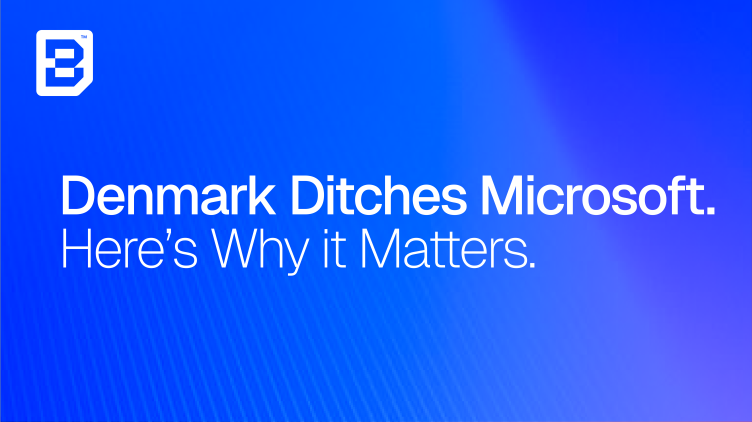
Denmark’s Digital Sovereignty Shift: A Signal Worth Watching
Denmark’s announcement that it plans to replace Microsoft Windows and Office with open-source alternatives like Linux and LibreOffice is a strong indicator of a growing shift toward digital sovereignty.
According to DR, the Danish Agency for Digital Government has proposed that central government ministries begin transitioning from Microsoft Windows and Office to open-source alternatives such as Linux and LibreOffice. The shift is limited to selected public sector institutions and will be piloted in specific ministries before being scaled more broadly across government. The aim is to reduce dependency on proprietary software, improve data governance, and enhance transparency and long-term control over state-run digital infrastructure.
Denmark is not alone. In Germany, the state of Schleswig-Holstein recently confirmed it is replacing Microsoft Teams with open-source alternatives. As reported by the Economic Times, officials cited concerns over data protection and the risk of relying too heavily on a single provider.
These moves reflect a wider trend across Europe. Software and platform choices are now being viewed through the lens of national security, privacy, and strategic resilience. For governments and enterprises alike, having control over where and how their data is managed has become just as important as convenience or cost.
Organisations in sectors such as healthcare, finance, and utilities are already starting to explore open-source and decentralised alternatives. These solutions allow for greater customisation, clearer data ownership, and the ability to meet compliance requirements without being tied to the terms of large multinational vendors.
This is not simply a technological pivot.
It represents a shift in mindset, where digital autonomy, resilience, and trust are treated as core components of any long-term digital strategy.
Binarii Labs: Built with Sovereignty in Mind
At Binarii Labs, we welcome this development. Our approach has always been grounded in the same principles:
We’re encouraged to see national policy moving in alignment with these principles. What Denmark is advancing at a governmental level, many enterprises are now actively exploring within their own digital strategies.
A Model for Forward-Looking Organisations
If your organisation is rethinking its digital stack with sovereignty in mind, whether from a compliance, resilience, or strategic autonomy standpoint, we’re here to support that journey.